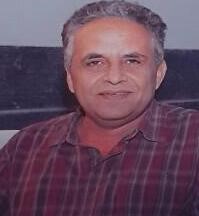

Rethinking the ‘Other,’ ‘Otherness,’ and Tolerance
in Contemporary Islamic Thought: The Wahhabi Case
a lecture by Muhammad al-Atawneh, 2015 Greenberg Middle East Scholar-in-Residence
Thursday, September 24, at 7:30 p.m.
Davis Auditorium, Skidmore College
The event is free and open to the public.
Wahhabi Islam, whose doctrines inspired Osama bin Laden, will be explored by this year’s Greenberg Middle East Scholar-in-Residence at Skidmore College. As part of his residency, Muhammad al-Atawneh of Israel’s Ben-Gurion University will give a free public lecture on September 24 at 7:30 p.m. in Davis Auditorium of Palamountain Hall.
In the wake of 9/11, the discovery that 15 of the 19 suicide skyjackers were Saudi citizens unleashed a storm of criticism against the Wahhabi branch of Sunni Islam, which is particularly strong in Saudi Arabia. Also known as Salafi, Wahhabism has been called fundamentalist, puritanical, and intolerant; critics cite its importance to Osama bin Laden, the Taliban and ISIL.
But in his Skidmore lecture, al-Atawneh will argue that today’s Wahhabism acknowledges
problems in its traditional perception of the “other” and is making significant efforts
to reformulate its doctrines, broaden its tolerance and engage in interfaith dialogue.
His talk is titled “Rethinking the ‘Other,’ ‘Otherness,’ and Tolerance in Contemporary
Islamic Thought: The Wahhabi Case.”
Al-Atawneh is a faculty member in Middle East studies at Ben Gurion. His research
focuses on contemporary Islamic politics, law and governance, as well as Islam in
Israel, the relationship between religion and state in various Islamic movements and
the Arab and Islamic worlds.
In 2010 he published Wahhabi Islam Facing Modernity: Dar al-Ifta in the Modern Saudi State. Dar al-Ifta is a center for Islamic law and legal scholarship that has denounced
extremism and militancy around the world. The book describes Dar al-Ifta and how its
muftis try to balance Wahhabi idealism and the realities of an evolving modern society.
Al-Atawneh’s earlier writings include “Faysal: Saudi Arabia’s King for All Seasons”
and “Is Saudi Arabia a Theocracy?”
The Greenberg Middle East Scholar-in-Residence Series is made possible by a gift from Jane Greenberg '81. The series enables the college to host an Israeli scholar who through teaching, lecturing and participating in campus life, educates the community on a range of topics concerning political life in the Middle East.